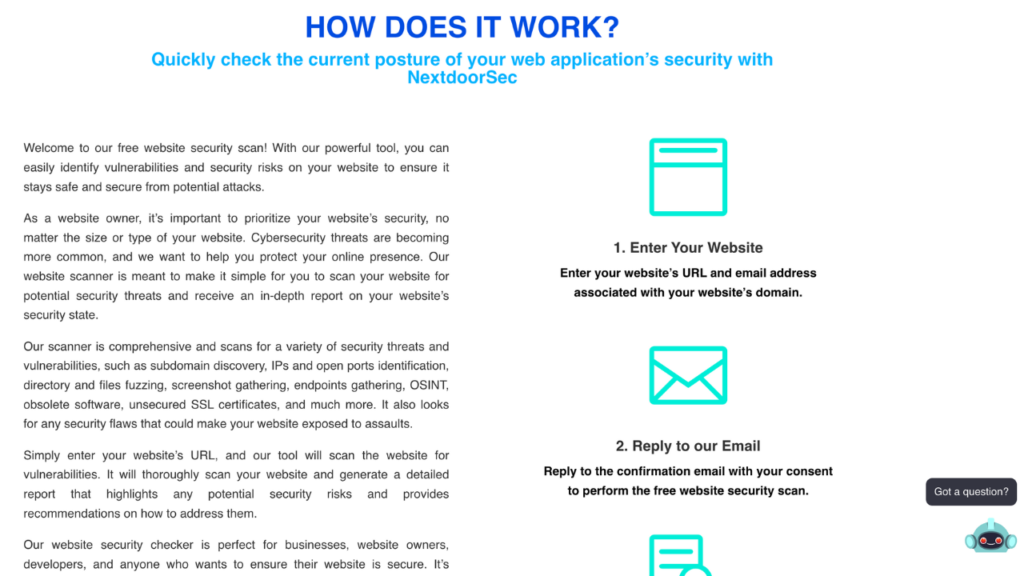In the digital age, the security of your website is not just a necessity; it’s a critical component of your online presence. With cyber threats evolving rapidly, the importance of implementing robust website security measures cannot be overstated. Whether you’re running a small blog or a large e-commerce platform, the risks of data breaches, malware attacks, and other cyber threats are real and ever-present. This guide aims to provide you with a comprehensive understanding of website security services, ensuring your online assets are protected with the best tools available.
Understanding the Landscape: Types of Website Security
Before diving into the best services, it’s crucial to understand the types of website security. Broadly, these can include firewalls, SSL certificates, malware scanning and removal, DDoS protection, and more. Each type addresses different aspects of security, from securing data transactions to preventing unauthorized access.

Also Check: Simple Yet Effective: How Does a Light Bulb Security Camera Work?
Top-tier Website Security Services Providers
When it comes to choosing a website security services provider, several key players stand out in the market. These providers offer comprehensive security solutions tailored to diverse needs, from small personal blogs to large e-commerce platforms.
GoDaddy Website Security: A household name in the domain and hosting world, GoDaddy also offers robust website security packages. Their services include daily malware scans, security monitoring, and removal, as well as the issuance of SSL certificates. GoDaddy’s solutions are user-friendly, making them a great choice for those who aren’t technically inclined.
Best Website Security for WordPress: WordPress sites have specific security needs, given their popularity and the abundance of third-party plugins. Services like Sucuri and Wordfence offer specialized WordPress security solutions, including custom firewalls and real-time threat defense systems.
Comprehensive Website Security Solutions: For businesses looking for an all-encompassing approach, companies like Symantec and McAfee provide extensive website security solutions. These may include advanced threat protection, secure VPN services, and 24/7 monitoring.
Customizable Website Security Packages
One size does not fit all in website security. Providers now offer customizable website security packages, allowing businesses and individuals to select features that best suit their needs. These packages can range from basic malware scanning to complete end-to-end security solutions, including incident response and recovery services.
DIY with Security Services Website Template
For those who prefer a hands-on approach, numerous DIY options are available. Security services website templates are designed for ease of use, enabling users to build their security systems. These templates often come with built-in security features and are customizable to cater to specific security requirements.
Regular Website Security Check: A Must-Do
Regardless of the security measures in place, regular website security checks are crucial. These checks help identify vulnerabilities and ensure that all security measures are functioning correctly. Many service providers offer automated security checks, but manual testing by cybersecurity experts can provide an additional layer of assurance.
NextdoorSec: Your Digital Security Assistant

In the realm of website security, cybersecurity companies like Nextdoorsec can play a pivotal role. The experts can assist in monitoring security logs, providing real-time alerts, and even suggesting security enhancements based on the latest cyber threat intelligence. Their ability to process vast amounts of data quickly makes them an invaluable asset in maintaining website security.
Conclusion
The importance of robust website security in today’s digital landscape cannot be overstated. Whether it’s through comprehensive service providers like GoDaddy, specialized WordPress security services, or customizable packages. Also leveraging cybersecurity companies like Nextdoorsec, securing your website is imperative. Regular security checks and staying informed about the latest security trends will further ensure that your online presence remains protected against evolving cyber threats. Remember, in the world of online security, being proactive is not just a strategy; it’s a necessity.
FAQs
1. What is the best security for a website?
The best security for a website typically includes a combination of SSL/TLS certificates for secure data transmission, regular software updates, strong password policies, a web application firewall (WAF), and regular security audits. Utilizing services from reputable cybersecurity firms can also enhance protection.
2. What is a website security service?
A website security service is a set of measures and tools designed to protect websites from cyber threats such as hacking, malware, and DDoS attacks. These services often include malware scanning, vulnerability patching, firewall protection, and incident response to maintain the integrity and availability of a website.
3. What are some secure websites?
Secure websites are typically those that use HTTPS protocol, indicated by a padlock symbol in the browser’s address bar. Examples include major banking websites, e-commerce platforms like Amazon, social media sites like Facebook, and any website that handles sensitive information and adheres to high-security standards.
4. How can I improve my website security?
To improve website security, regularly update all software and plugins, use strong, unique passwords, implement a web application firewall (WAF), enable HTTPS, conduct regular security audits, and educate yourself and any website users about cybersecurity best practices. Additionally, consider using a professional website security service for more comprehensive protection.






0 Comments